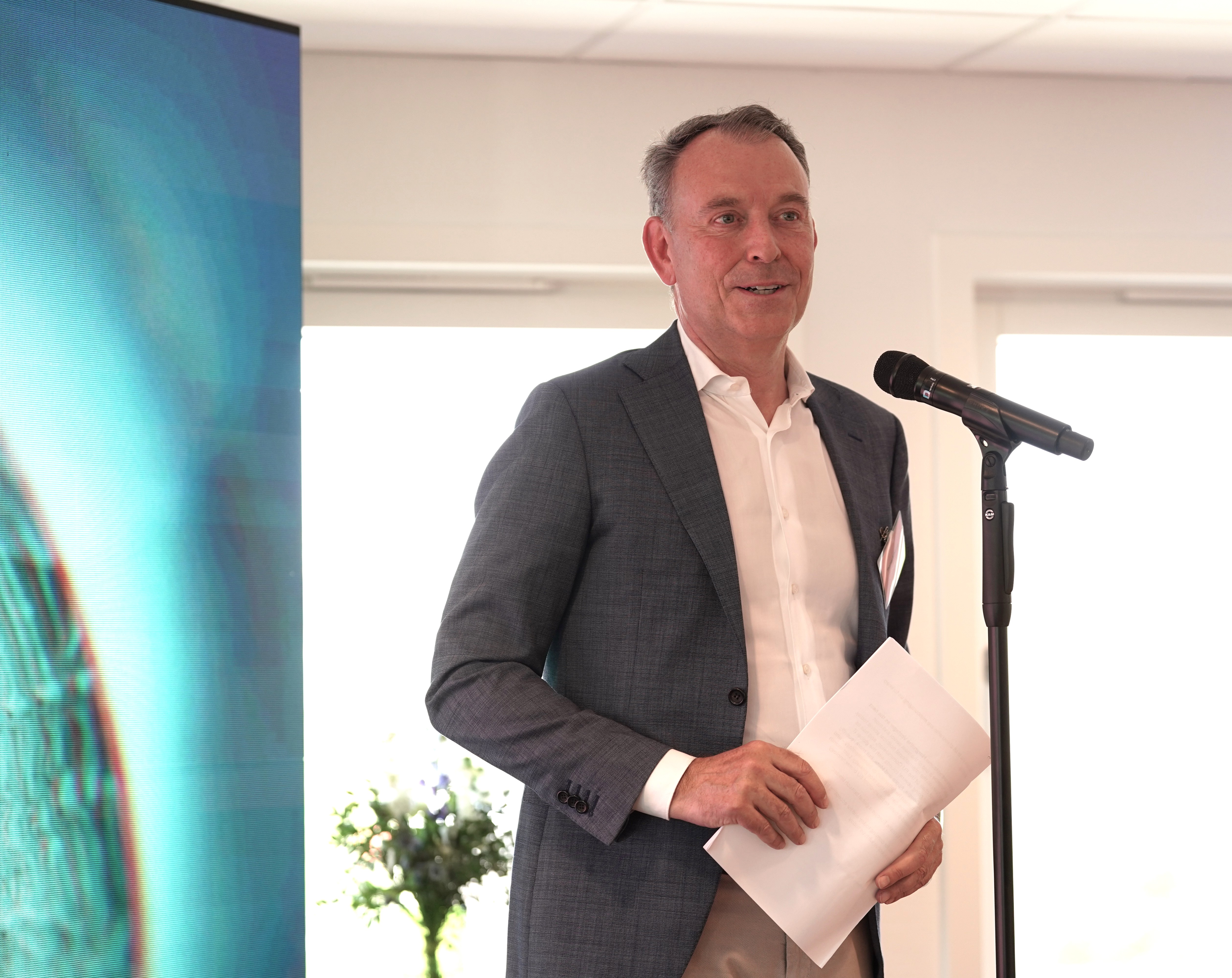Highlights of SynBioBeta Day 2: Neobiological revolution, bio is not another app, living medicines, and biosecurity
What a jam-packed second day today! We kicked things off with an energizing fireside chat on the coming together of neuroscience and synthetic biology – and the neobiological revolution we’ve all been witnessing in real time. MIT’s Ed Boyden, OS Fund’s Bryan Johnson, and Neo.Life’s Jane Metcalfe reflected on the neuro-frontier of today and where that knowledge might take us tomorrow.

Johnson (left) and Boyden (middle) in conversation with Metcalfe (right).
The trio touched on brain imaging breakthroughs, the need for daring scientific investment, and the relative stature of biology as a research discipline. “There are points in history where a scientific field goes from an art form to a mature field,” said Boyden. “We are starting to see the complexity come into view as something tractable.”
With that knowledge comes a radical new possibility: interfacing directly with the brain.
“Brain interfaces will be as pervasive as smartphones are in 15 years,” said Johnson. His company Kernel is working with top scientists like Boyden to help make that happen.
Next up on the mushroom stage was a conversation between Twist CEO Emily Leproust and Bloomberg’s Kristen Brown. Despite Twist’s growth and success, Leproust said the company’s vision — making DNA for health and sustainability — hasn’t changed.
” continuously expanding the menu of DNA products we can make,” she said, including oligo pools for CRISPR, antibody libraries, and targeted genome sequencing. These advances have allowed partners to embark on previously unthinkable ventures. “Five years ago you would not have expected Microsoft to do data storage . That’s maybe the most unexpected,” she said.

“We started with DNA writing. We’ve moved into DNA reading. With CRISPR, we are also supporting DNA editing.” — Emily Leproust, CEO of Twist Bioscience
After hearing from a DNA evangelist, it was Team Protein’s turn to take the stage.
Representatives from Codexis, Arzeda, Renew BioPharma, and Distributed Bio spoke about the power of proteins to enhance agriculture, reframe cannabinoids, interface with AI, and protect us from a century’s worth of deadly infections. Mark Fischer-Colbrie from Labcyte then gave a fantastic talk on acoustic liquid dispensing, and we broke for coffee and workshops.
Next, Megan Palmer, Peter Carr, Ryan Ritterson, and James Diggans discussed emerging biosecurity issues at a panel sponsored by the Open Philanthropy Project. Moderator Gigi Gronvall hit on an essential point early: “We’re not going to solve biosecurity — this is going to be something that will be part of your careers for the foreseeable future.”
“The synthetic biology community is not as aware of biosecurity as it should to be,” noted Ritterson. But awareness is key. "All of us being interested in biosecurity creates a layer of safety,” he said.
The ethics that undergird biosecurity operate on two levels, according to Palmer. Micro-ethics, which are commonly held, ensure that researchers don’t fudge their data or plagiarize. But macro-ethics are the secret sauce needed to ensure we all are pursuing the right goals. Visible ethical leadership helps budding scientists discover the right macro-ethics, Palmer explained.

“We need to be prepared broadly and not just focused on a short list of potentially dangerous organisms.” — Peter Carr, Senior Scientist at MIT’s Synthetic Biology Center
Our next series of talks, sponsored by Ginkgo Bioworks, was about the awesome power of living medicines — engineered microbiomes, designer probiotics, CAR-T cells, and more. Speakers from Ginkgo, Prokarium, Azitra, Evolve BioSystems, and Locus Bio outlined their efforts to bring new cures to life.
“We stand on the precipice of changing the way that medicine is delivered,” said Locus Bio CEO Paul Garofolo. But building living medicines in inherently hard, noted Ginkgo’s Ena Cratsenburg. Partnerships that span disciplines are essential.
After a delicious lunch and bio-themed workshops, we enjoyed an afternoon full of lightning talks, panel discussions, and breakout sessions focused on: supporting young entrepreneurs (Indiebio is setting up shop in NYC!); enzymatic DNA synthesis (150bp fragments — it’s happening!); the death of cloning (finally); saving the environment with biology (nothing’s greener); and much, much more.
Did catch a talk by a particularly inspiring speaker? Share your story using #SynBioBeta2018

“We are looking to outlaw cloning.” — Yuki Qin, GenScript

“People love meat not because of how it is produced but in spite of how it is produced” — Seth Bannon, Fifty Years

“There are huge opportunities to create the industries of the future that not only meet the needs of society but meet them in a highly personalized fashion.” — Ganesh Kishore, Spruce Capital Partners

“Biology is becoming a data science.” — Kevin Holden, Synthego
For our final main stage event, Ecovative CEO Eben Bayer described for the first time his company’s new Mycelium Biofabrication Platform — a crucial step in his ambitious plan to “save spaceship Earth.”
If there was ever a time to be in three (or more) rooms at once, today was it. Thanks to all our sponsors for making this remarkable day possible.
Other announcements today include:
- Pivot Bio Closes $70 Million Series B Financing to Deliver First and Only Clean Alternative to Synthetic Nitrogen Fertilizer for U.S. Corn Farmers
- Technology Roadmap Poised to Revolutionize Discovery at the Intersection of Semiconductors and Synthetic Biology
- Platelet BioGenesis and Scaled Biolabs to Collaborate To Optimize Platelet Production Platform
- Cambridge Consultants and CATALOG reveal plans for scalable DNA data encoding machine
- SynbiCITE launches new five-year strategy
- Arzeda and BP Sign Collaborative Joint Development Agreement
- Arzeda Leverages Scalable Synthetic Biology Resources to Drive Computational Protein Design Platform
- Evonetix partner with LioniX International to enable DNA synthesis at scale
- Synthace Launches Ground-Breaking New Whitepaper: Computer-Aided Biology: Delivering Biotechnology in the 21st Century
- Bristol-based company breaks records for a UK biodesign exit



.svg)









-min.png)


.gif)